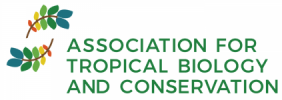FEATURED SPEAKERS
Ana María Hernández
Chair Intergovernmental Science-Policy Platform on Biodiversity and Ecosystem Services (IPBES)
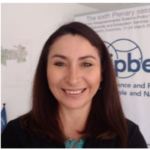 The contribution of IPBES to our understanding of biodiversity in the Americas
The contribution of IPBES to our understanding of biodiversity in the Americas
Ana Maria has more than 22 years of experience in the framework of Multilateral Environmental, regional, and binational Agreements. She was a researcher in the Policy and Legislation Program of the Alexander von Humboldt Institute; Head of the Office of International Affairs of the Ministry of Environment, Housing and Territorial Development; Executive Director of the Fundación NaturaCert; and Head of the Office of International Affairs, Politics and Cooperation of the Alexander von Humboldt Institute in Colombia. she has had the honor of representing Latin America and the Caribbean in the Bureau of the COP of the United Nations Convention against Desertification and Drought (UNCCD), the SPAW protocol of the Cartagena Convention and the Intergovernmental Science-Policy Platform on Biodiversity and Ecosystem Services (IPBES).
Víctor Arroyo-Rodríguez
Faculty, Instituto de Investigaciones en Ecosistemas y Sustentabilidad, Universidad Nacional Autónoma de México
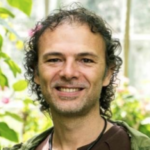
How to preserve forest species in human-modified landscapes?
Dr. Víctor Arroyo-Rodríguez is a tropical landscape ecologist whose research focuses on assessing the contribution of human-modified landscapes, and habitat fragmentation in particular, to biodiversity conservation. His research addresses this issue from both a plant and primate perspective, and he has worked primarily in southern Mexico and Brazil.
Michelle Scobie
Lecturer, The University of the West Indies at St. Augustine, Trinidad and Tobago.
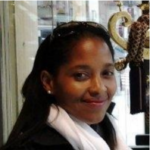
Global Environmental Governance and Small States: Biodiversity governance in the insular Caribbean
Michelle Scobie, PhD, LLB, LEC, is a lecturer and researcher at the Institute of International Relations at The University of the West Indies (UWI), St. Augustine and Co-Editor of the Caribbean Journal of International Relations and Diplomacy. She has practiced as an attorney at law in Trinidad and Tobago and Venezuela. She is a member of the Caribbean Studies Association, the International Studies Association, the University of the West Indies Oceans Governance Network, the Earth System Governance Global Research Alliance, the Future Earth Ocean Knowledge Action Network and the International Studies Association. Her research areas include international law, international environmental law and developing states’ perspectives on global and regional environmental governance. Her most recent book: Global Environmental Governance and Small States: Architectures and Agency in the Caribbean.
Julia Shimbo
Researcher at Amazon Environmental Research Institute (IPAM), and scientific coordinator at MapBiomas in Brazil.
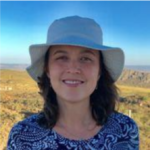
MapBiomas initiative: Three decades of land use and land cover changes in Brazilian Biomes
Dr. Julia Shimbo is an ecologist, researcher at the non-governmental organization Amazon Environmental Research Institute (IPAM), and scientific coordinator of MapBiomas in Brazil, a collaborative network of institutions that generates Brazil’s annual land use and land cover maps from 1985 onwards. She worked in the Land Use Change and Forestry Sector of the Third National Inventory of Anthropogenic Emissions of Greenhouse Gases in Brazil by the Brazilian Research Network on Global Climate Change (Rede CLIMA). She is also part of the team in the Land Use Change sector of the System for Greenhouse Gas Emissions and Removals Estimates (SEEG) in Brazil, a platform developed by Brazilian NGOs under the umbrella of the Brazilian Climate Observatory. She mainly works on understanding the land-use changes in Brazil and their impacts on climate change, GHG emissions, ecosystems, and people.
